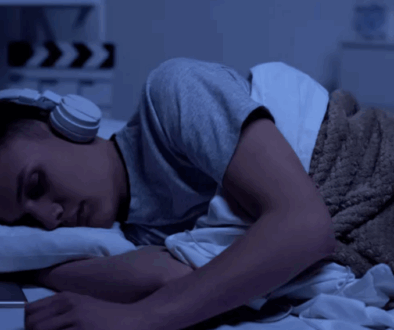Insights in Mental Illness
by: Richard Gardner, President of National Alliance for Mental Illness (NAMI) of Berks County, PA
 I am an unmedicated bipolar 2 who has mixed episodes and can have ultra-rapid cycles. By the age of 35, I knew there was something different going on in my life. At that time I called it manic/depression. This was a term I did not even begin to understand. The first diagnosable onset for me was about 13 years ago while working towards a BS Biology. I was about 47 years old, at the start of a divorce and under a lot of pressure from school.
I am an unmedicated bipolar 2 who has mixed episodes and can have ultra-rapid cycles. By the age of 35, I knew there was something different going on in my life. At that time I called it manic/depression. This was a term I did not even begin to understand. The first diagnosable onset for me was about 13 years ago while working towards a BS Biology. I was about 47 years old, at the start of a divorce and under a lot of pressure from school.
My gift of bipolar is inherited from both paternal and maternal sides of my family. I am certain that my paternal grandfather, possibly my father and definitely a maternal aunt were bipolar. Further back, probably a paternal great-grandfather and others on that side of my heritage had mental health issues. The same is true on my mother’s side of my family. Several of my siblings and at least two cousins have (undiagnosed) mental health problems. Two or all three of my children have mental illnesses which were inherited from maternal and paternal sides of their heritage.
A few years ago, with the strong possibility of suicide (always a close companion for me), I had to walk away from siblings and parents. My brothers and sister are egotists. Like most egotists, they are bullies. My mother was unable to deal with my issues, even though they run deep in her family. So, she gave them into my father’s hands. My father’s answer was not much different than my mother’s, denial. Except he went one step further; he was enabling me to suicide while thinking he was doing good. The end result was I walked away to protect myself and prevent my children from losing their father to suicide. The only contact we have with each other is that my parents and I exchange holiday and birthday cards. I do not communicate at all with my siblings, as that is still upsetting. Communication with cousins, aunts and uncles is tenuous.
My social history has been one of not fitting in with other people while not understanding the reason. I have little patience with deliberately stupid and lazy people. I often prefer my company to that of other people. In the last several years I have quit or been kicked out of several social groups. I am okay with this, even though I wish that fitting in socially at some level was easier.
Many years ago I was hospitalized over Thanksgiving weekend by the brother I was living with at that time. In addition to the Tegretol I was taking, another mood modifier was given me. I rejected the second medication almost immediately due to the uncomfortable changes that it caused in my personality. Tegretol was dropped when attempting to obtain a teaching certificate a couple years later as it was blocking some of the intelligence and creativity I needed in the coursework, an unfortunate side effect of some medications.
I view what I have been given as a gift with a price. There are very few worthwhile gifts that do not have a cost associated with them. Bipolar has made me much healthier and stronger because it gives me the choice of living a healthy and mindful life or not live at all. The strength and resiliency necessary to make the necessary life style changes and live the way I do developed through ultra-marathoning. This activity increased mental, physical and spiritual strength and resiliency by pushing me far beyond what had been done previously in my life. (For other people, other activities will do the same as long as they force you to challenge yourself beyond perceived limits.) I know all these aspects of what I am have limits, but am thankful for what I have.
The other part of the gift side is that I have been given creativity, a strong drive for excellence in everything I do and an unusual type of intelligence. I have a selective eidetic memory with the ability to problem solve through visually perceiving a problem and its solution. This gift helps me as an ecologist deal with nearly infinite data sets to see the trends and patterns which define ecology. Part of the related cost is that I have huge intellectual and social holes. Like Thomas Jefferson, what I do well I do very well. What I do poorly is done poorly. Along with this I am often insensitive and oversensitive to the people around me. This is moderating as I get older and am beginning to grow through some of the emotional immaturities that are common with bipolar.
My only real regret with being bipolar is that I did not learn earlier who and what I am even though it was apparent in my family for several generations and in me since at least my mid-teens. If I would have had this knowledge and the understanding which comes from it, life for me, my family and those around me would have been much easier. This knowledge would have also helped me contribute earlier, more and better to our society and our world.

Bill of Rights for the Mentally Ill
This is my proposed Bill of Rights for the Mentally Ill based on my experiences/observations and reading the Bill of Rights for the mentally ill from other organizations including the Federal government and Pennsylvania state government versions:
- We have the right to be treated as intelligent people with individual health care needs.
- We have the right to be fully informed about our diagnosis including references we can use to research our condition.
- We have the right to decide which treatments we will use such as:
- cognitive behavioral therapy, dialectical behavioral therapy, life coaching and group therapy to help us make the necessary behavioral and life style changes,
- medications, with the purpose of all suggested medications, their benefits, side effects and the consequences of using them or not using them explained clearly to us,
- alternative therapies or combinations of therapies providing they are not injurious to ourselves or the people around us, including family, friends and society in general.
- We have the right to pick an advocate or champion who will:
- be fully informed about our condition, treatments and other relevant information,
- help us make treatment decisions and intervene if necessary to ensure we are getting the right treatment for our condition,
- make decisions for us regarding our physical and/or mental health when we are incapable of doing so.
- We have the right to full informed medical care for conditions not related to mental illness.
Relevant references:
Pennsylvania MH Bill of Rights: http://www.health.state.pa.us/pdf/hosp-regs/028_0103.pdf starting at section 103.21
US Government MH Bill of Rights: https://www.law.cornell.edu/uscode/text/42/9501
Thank you for reading my article and letting me share my insights about mental illness with you!



